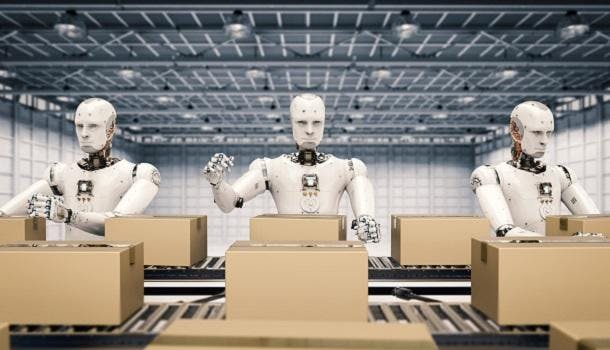By 2030 up to 800 million global workers will lose their jobs to automation, a report from the McKinsey Global Institute predicts. This phenomenon is not a new one, as globalization and trade have reshaped labor markets many times over. However, this iteration of technological advancement is changing both service-sector and professional jobs at a staggering pace. Lower-skilled workers are being quickly replaced with robots. Similarly, ‘telemigration’ allows for talented, low-cost workers abroad to telemigrate into high-wage nations replacing office employees. Richard Baldwin, professor of international economics at the Graduate Institute of International and Development Studies, argues that a global upheaval is possible when these groups join forces in the face of automation. While this advance in technology may present a daunting future, it also has the capability of creating jobs and making the world a better place.
In his new book, “The Globotics Upheaval: Globalization, Robotics, and the Future of Work,” Baldwin, examines what the future might look like. What jobs will “globotics” create? How can governments better prepare for this international shift in the labor market? What skills are needed to ensure that job displacement doesn’t spur rapid increases in the rate of unemployment? Join Professor Baldwin to discuss all the implications of "globatics."
show less
In his new book, “The Globotics Upheaval: Globalization, Robotics, and the Future of Work,” Baldwin, examines what the future might look like. What jobs will “globotics” create? How can governments better prepare for this international shift in the labor market? What skills are needed to ensure that job displacement doesn’t spur rapid increases in the rate of unemployment? Join Professor Baldwin to discuss all the implications of "globatics."
By 2030 up to 800 million global workers will lose their jobs to automation, a report from the McKinsey Global Institute predicts. This phenomenon is not a new one, as globalization and trade have reshaped labor markets many times over. However, this iteration of technological advancement is changing both service-sector and professional jobs at a staggering pace. Lower-skilled workers are being quickly replaced with robots. Similarly, ‘telemigration’ allows for talented, low-cost workers abroad to telemigrate into high-wage nations replacing office employees. Richard Baldwin, professor of international economics at the Graduate Institute of International and Development Studies, argues that a global upheaval is possible when these groups join forces in the face of automation. While this advance in technology may present a daunting future, it also has the capability of creating jobs and making the world a better place.
In his new book, “The Globotics Upheaval: Globalization, Robotics, and the Future of Work,” Baldwin, examines what the future might look like. What jobs will “globotics” create? How can governments better prepare for this international shift in the labor market? What skills are needed to ensure that job displacement doesn’t spur rapid increases in the rate of unemployment? Join Professor Baldwin to discuss all the implications of "globatics."
read more
In his new book, “The Globotics Upheaval: Globalization, Robotics, and the Future of Work,” Baldwin, examines what the future might look like. What jobs will “globotics” create? How can governments better prepare for this international shift in the labor market? What skills are needed to ensure that job displacement doesn’t spur rapid increases in the rate of unemployment? Join Professor Baldwin to discuss all the implications of "globatics."
show less
Date/Times:
312 Sutter Street, 2nd Floor , San Francisco, CA 94108
The Best Events
Every Week in Your Inbox
From Our Sponsors
UPCOMING EVENTS
Great suggestion! We'll be in touch.
Event reviewed successfully.









